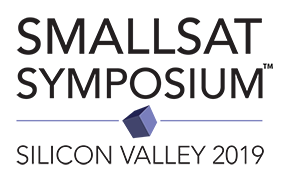
PlanetiQ has completed an $18.7 million Series B round of financing, with New Science Ventures and AV8 Ventures co-leading the investment round with participation from existing and new investors, Valo Ventures, Kodem Growth Partners, Access Venture Partners, Virginia Tech Innovation Fund, Hemisphere Ventures, Service Provider Capital, Earth Investments, Moonshots Capital, and a large Kansas City-based family office that wishes to remain anonymous.

The investment brings PlanetiQ’s total funding to $23.9 million. The additional funds will help the company aggressively accelerate the launch of its high-definition radio occultation (HDRO) satellite constellation aimed to revolutionize worldwide weather forecasting by offering highly accurate weather predictions earlier, faster, and less expensively than current technology.
Radio Occultation (RO) is a cutting-edge meteorological technique that determines the attributes of weather (temperature, pressure, water vapor, wind) at all altitudes above the surface of the earth, dramatically increasing the accuracy of all types of weather forecasting.
New Science Ventures partner, Vivek Mohindra, and AV8 Ventures managing director, George Ugras, will join PlanetiQ’s Board of Directors. New Science Ventures invests in early and late-stage technology and life-sciences companies that take novel scientific approaches to address significant unmet needs. AV8 Ventures invests in early-stage breakthrough technology companies.
The Series B financing builds on an exceptional year for PlanetiQ, which witnessed PlanetiQ’s HDRO Pyxis instrument go into production, triggering a major revenue award from NOAA. PlanetiQ plans to launch its first two spacecraft into orbit at the end of 2019 with the remainder of the planned 20 spacecraft constellation being launched in 2020 and 2021.
Vivek Mohindra said that, given the PlanetiQ team’s experience with 13 experimental RO missions to space, the company is highly confident in the ability of HDRO to revolutionize weather and climate prediction with very significant commercial impact for several diverse industries ranging from transportation to agriculture to renewable energy.
PlanetiQ’s Founder and Chairman, Chris McCormick, added that traditional space-based weather prediction technologies are not only much more expensive than RO on a per-reading basis, but also do not give the vertical resolution or water vapor accuracies that RO does — RO garners information up to every 100 meters, while competing technologies give more of an ‘averaged’ view of what is happening every 2,000 to 3,000 meters across the atmosphere. The resultant inaccurate weather predictions place millions of lives and an immeasurable amount of resources at risk every year.
PlanetiQ CEO Steve Joanis added that the company’s transition from a science-based company to a commercial company was the biggest milestone in 2019. Being awarded a major contract by the National Oceanic and Atmospheric Administration is a validation of the company’s business model and demonstrates the U.S. government’s commitment to HDRO specifically as well as to commercial weather applications in general.
